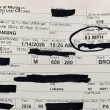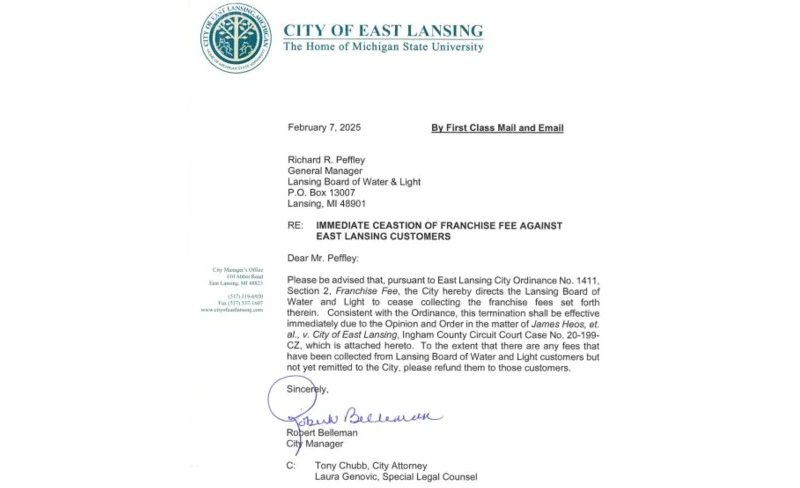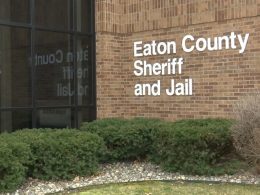East Lansing, Mich. – The City of East Lansing has been ordered to cease collecting franchise fees from its residents, following a Michigan Supreme Court ruling that declared the fee to be an illegal tax. This decision marks a significant financial and legal shift for the city and the Lansing Board of Water and Light (BWL), which had been responsible for collecting the fees.
The franchise fee, which was implemented in 2017 to address a budget shortfall, has generated approximately $1.4 million annually for East Lansing. However, the Michigan Supreme Court ruled that the fee functioned as a tax and violated the Headlee Amendment, a Michigan law that requires tax increases to be approved by voters. The Court concluded that the fee was not proportionate to any costs incurred by the city and was not voluntary, ultimately deeming it an illegal tax that bypassed the required voter approval.
In response to the ruling, East Lansing City Manager Robert Belleman expressed disappointment, noting that the decision came after the Michigan Court of Appeals had previously sided with the city. Despite the setback, Belleman assured that the city is working to comply with the court’s order promptly. “We are working to comply with the decision in a timely fashion,” said Belleman. “As a result, the City has requested that LBWL immediately cease collecting the franchise fee from East Lansing customers, while the next steps in the overall process will be determined by the Ingham County Circuit Court.”
BWL is now required to stop collecting the franchise fees from customers within East Lansing, effective immediately. Additionally, any funds that have not been forwarded to the city must be refunded. However, it remains unclear how much of the money collected by the utility company will need to be refunded or how the city will handle the financial shortfall going forward.
Attorney James Heos, who initially filed the lawsuit against the city, has suggested that East Lansing may also be required to pay back the fees collected since 2017, potentially amounting to as much as $10 million.
The franchise fee, which was introduced to help bridge a budget gap, had been collected by BWL and handed over to the city in exchange for a small fee. The city has yet to release details on how it will manage the lost revenue or if alternative solutions will be proposed.
East Lansing residents, meanwhile, may see a reduction in their utility bills, as the fees will no longer be charged. The full financial and legal implications of the decision are still unfolding, and the city awaits further direction from the Ingham County Circuit Court on the next steps.












